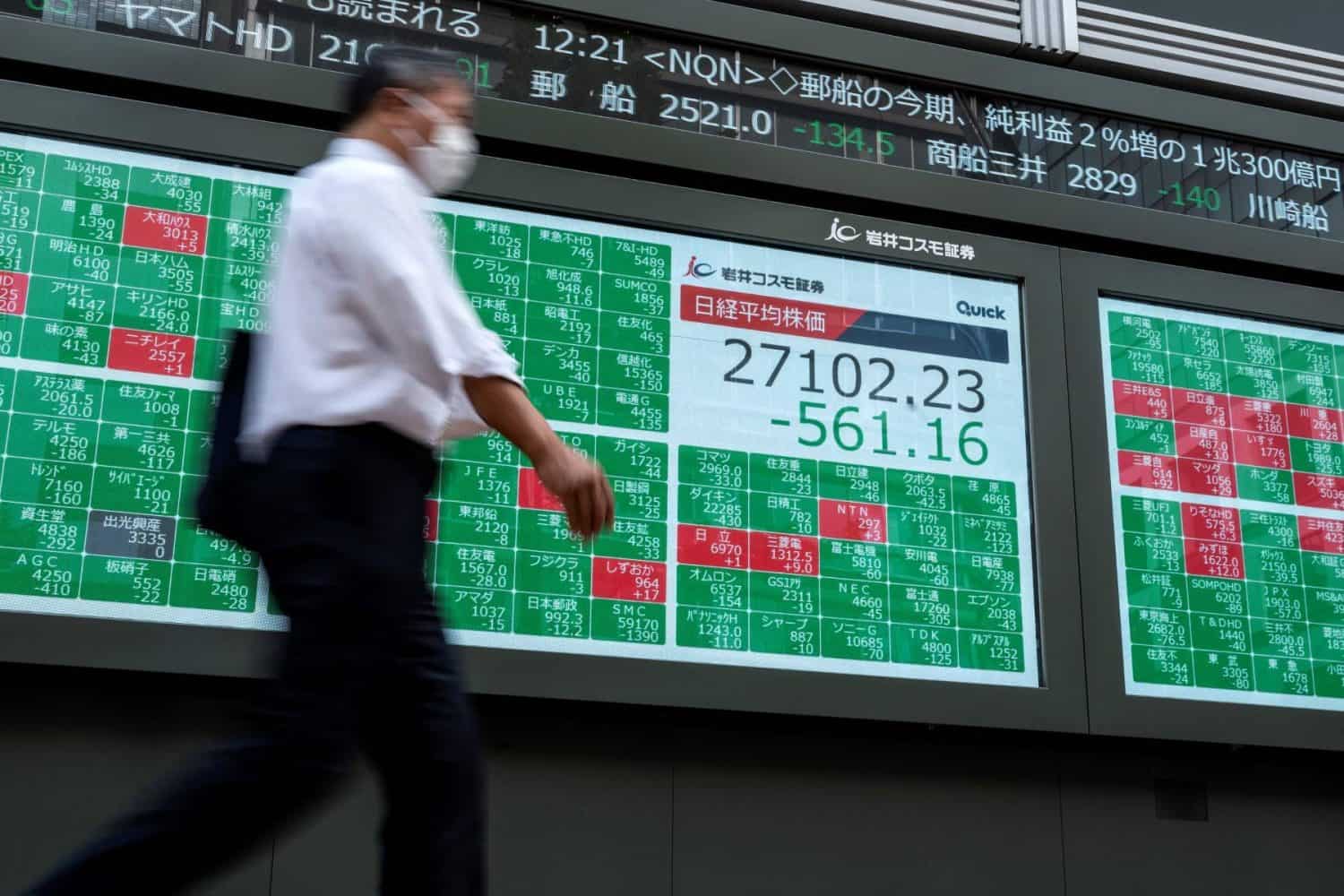LONDON, UNITED KINGDOM – Stock markets mostly rose Monday, extending last week’s strong gains, while oil prices fell after China reaffirmed its commitment to its economically painful zero-Covid policy.
The dollar was down against key rivals ahead of this week’s US midterm elections.
Global markets and oil prices were buoyant last week on hopes Beijing may begin to roll back policies aimed at stamping out the disease within its borders.
But on Saturday, the Chinese government said it would “unswervingly” stick to its current plan, which involves harsh lockdowns and strict quarantine and testing regimens for even the smallest clusters of cases.
Despite the official stance, “there are still hopes in the market” that Beijing may relax COVID-19 restrictions in the coming months, Iris Pang, chief economist for Greater China at ING Wholesale Banking, told AFP.
“Traders believe that the Chinese government cannot permanently hold these existing Covid measures, and therefore the only direction is… looser Covid measures,” she said.
Ongoing large-scale events, such as the China International Import Expo in Shanghai, are also seen by investors as “a kind of water-testing” by Beijing, to see if cases and deaths rise significantly, Pang added.
On Friday, Wall Street equities ended a volatile session higher after US jobs data showed hiring remained resilient and wages continued to rise, though at a slower pace.
That raised hopes of a soft landing for the world’s biggest economy despite aggressive Fed rate hikes aimed at taming inflation.
Meanwhile, two years since US President Joe Biden was swept to power in one of the most fraught elections Washington has witnessed, all eyes are on the next nationwide vote Tuesday.
US voters decide every two years who gets the majority in both chambers of Congress – and whether the president will get any new policies passed or if the opposition will be able to frustrate the agenda.
“A divided government can be good for the market,” noted Neil Wilson, analyst at Markets.com.
“A Republican clean sweep would likely take key Democrat legislation off the table – mainly positive for markets – whilst in the unlikely event that the Democrats retain both houses it could see them push on with fiscal stimulus, mainly negative since it might be inflationary.”








